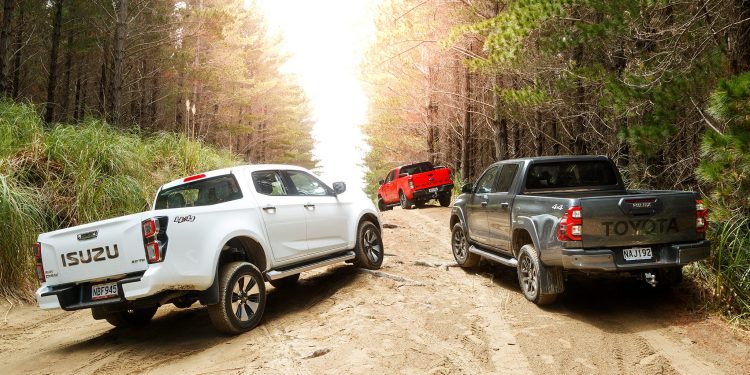Ardern rules out levy exemption for those who need utes
New Zealand prime minister Jacinda Ardern has confirmed that, while the government did investigate the idea of giving out levy exemptions to certain ute buyers as part of its upcoming Clean Car Discount fees regime, no such exemption is in the pipeline.
Speaking at the Fieldays agriculture expo in Hamilton yesterday, Ardern said that the government were familiar with the “time lag” between now and when electric ute options are offered in showrooms, before conceding that exemptions were “going to be very difficult to operationalise”.
“We discussed whether or not, because there’s a time lag for the development of some of those EV and hybrid alternatives for utilities, whether there should be some form of carve out. We discussed that because we recognised that there was a lag in the technology right now,” she said.
“In the meantime, none of this applies to existing vehicles in the country. This on the second-hand market, those already here … it’s only new and new imports [affected]. So there are options available to avoid the fees regime.”
This follows claims from Federated Farmers president Andrew Hoggard that the government should consider exemptions for those who buying utes for work purposes, reiterating that he was fine with those who just want to ‘look cool’ to have to pay the levy.
“Basically it’s just going to be an additional cost, and […] what I’d like to see is some sort of waiver until there are those alternatives on the market,” he said, speaking to RNZ. “But everyone else that wants to buy a double cab Ranger just to drive it into the middle of Wellington and park it up so they look cool, sorry you’re going to get slapped with [the fee].”
According to Ardern, the difficulty in operationalising such an exemption is in filtering out those who don’t use their utes for work purposes.
This has some truth to it, given the amount of ute owners who don’t pay fringe benefit tax (FBT) due to the way the segment is defined in New Zealand. Utes that are part of a company fleet and used privately are meant to incur FBT charges, but some industry pundits have said there’s plenty of non-compliance among these drivers.
The prime minister said she hopes that electrified ute options will be locally available in the next 12 to 24 months. “The time frames, we’re hoping, will be relatively short. This scheme [the fees regime] will come into place next year […] and there we have about from today a 12 to 24 month period before manufacturers are indicating we’re likely to see hybrids or EVs in the market,” she said.
“Toyota have indicated that […] by the end of next year I believe they’re hoping for hybrids. There are alternative manufacturers of course that they wouldn’t choose to name that are looking at electric options within the next 12 to 24 month period. My point was that there are alternatives that will not attract fees that are being promoted as in the pipeline by manufacturers.”
Ardern and Toyota came to blows on Monday after the prime minister said that the juggernaut firm is expected to launch an electric ute in the next 12 to 24 months. Toyota NZ CEO Neeraj Lala denied the claim in a press release, with Motor Industry Association CEO David Crawford also releasing a statement.





